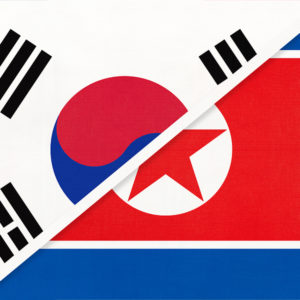SEOUL — We hear so much about human rights that many of us are tired of the term. Sure, North Korea is an egregious human rights violator. True, Americans — ranging from law enforcement people to officials hauling in illegal immigrants and asylum seekers along the Mexican border — violate human rights too.
And, yes, a number of American friends and allies have far worse records. Assaults on life, liberty and the pursuit of happiness may vary in degree but are commonplace everywhere in one form or another.
Bearing that in mind, we know that South Korea is not seriously raising the issue of human rights with North Korea. The conventional wisdom is, let’s not upset the North Koreans when they’ll only hate us for talking about it and refuse to deal with us. That’s why for the last two years South Korea has not joined other nations in co-sponsoring a U.N. resolution condemning the North for its abysmal human rights record.
It’s also a pretty safe bet that Stephen Biegun, who parlayed an appointment as U.S. representative on North Korea into the post of deputy secretary of state, has not pressed the issue of North Korea’s record during his latest and probably last visit to Seoul.
As a relic of the Donald Trump administration, Biegun had more immediate concerns, notably the frayed U.S.-South Korean alliance. He would have been well aware, in his farewell to Korea before the end of the Trump presidency, that North Korean human rights rank well down the topics that really matter in maintaining old-time goodwill and friendship between the United States and South Korea.
The great flaw in this thinking is the North Koreans are not talking to either the South Koreans or the Americans. South Korea and the United States have absolutely nothing to lose by pressing hard on the human rights issue when North Korea is severely weakened by just about everything from COVID-19 to typhoons and flooding to sanctions imposed for wasting resources on nuclear explosions and missile launches.
The country may never have been more isolated. Only two U.N. officials, both with the World Food Programme, remain there. Most foreign diplomats, weary of confinement to their missions and fearful of catching COVID-19 where medical care ranges from inadequate to non-existent, have fled.
Biegun during his visit also would not have delved into South Korea’s own human rights violations. In a society where dictators once repressed dissent, the progressive government of Moon Jae-in now is anxious to jail anyone guilty of annoying the North Korean leaders by sending over balloons laden with waterproof leaflets informing ordinary citizens of the iniquities of their regime.
North Korean authorities have complained about these leaflets for years, but it was not until Kim Jong-un’s younger sister, Kim Yo-jong, got really mad and had the bright idea of blowing the North-South liaison office in the Gaeseong Industrial Complex to smithereens that Moon decided to crack down on the balloonists.
In a way, you can see Moon’s point. Here he is trying to foster inter-Korean cooperation, to resume North-South dialog, and these defectors, impassioned in their hostility to a system whose crimes they have experienced firsthand, want to do their utmost to destroy any chance of rapprochement.
Looking at some of these leaflets, you have to admire the skills of their anonymous writers in exposing and mocking North Korean leaders while realizing they do jeopardize any chance of talks on urgent issues, including the North’s nuclear program.
Fine, but those talks have never gone anywhere, anyway, anyhow, as seen in Kim’s failure to begin to get rid of his nukes despite the phony promise he and Trump signed in Singapore in June 2018 to work for a nuclear-free Korean Peninsula.
John Sifton at Human Rights Watch in New York noted the irony of South Korea seeming “more interested” in appeasing Kim than granting South Koreans “basic rights on behalf of their northern neighbors.”
Freedom is at stake here. North Koreans have the right to know what’s going on in their own country where the state media are the only source of news. If defectors want to spread the word of corruption and nepotism in the Kim dynasty on waterproof paper wafted from the heavens, let them.
It is hoped Biegun’s successors at the State Department will have the temerity to urge South Korea to hold North Korea to task for terrorizing and brutalizing its own citizens. Leaflet drops are one way to deliver the message.

